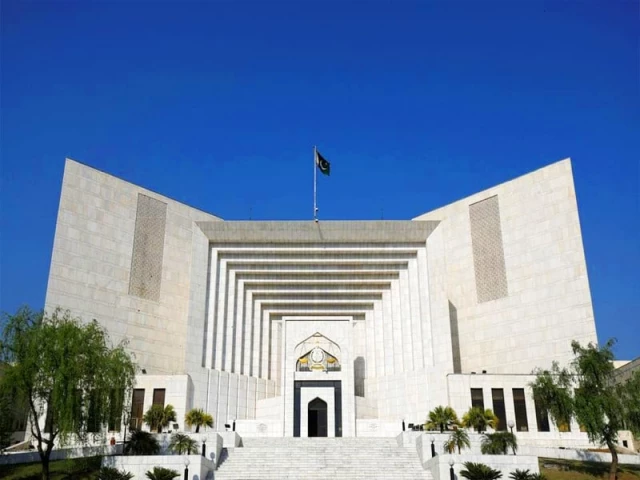Islamabad:
The judge of the Supreme Court, Shahid Bilal Hassan, said that the constitutional bench, established under the 26th amendment to the Constitution, reflected the will of the Parliament and marked structural development in the functioning of the court.
At the invitation of International Lawyers Association (ILA), judge Shahid Bilal Hassan attended the ILA annual seminar and dinner in Gray’s Inn, London, where he was the guest of honor, according to a press release.
The event attracted a distinguished rally of the global legal fraternity, with a notable participation in South Asia – in particular Pakistan, Bangladesh and India – as well as the main practitioners and a former British judge.
The seminar provided a vital platform for dialogue on contemporary legal issues, the challenges faced with judicial systems and the shared commitment of the international legal community to justice and the rule of law.
In his speech, judge Shahid Bilal Hassan spoke of two central themes: the importance of the constitutional bench of the Supreme Court of Pakistan and the need to deal with cases.
He explained that the constitutional bench, established under the 26th amendment to the constitution of the Islamic Republic of Pakistan, 1973, reflects the will of the Parliament and marks structural development in the functioning of the court.
The bench, he noted, guarantees a devoted accent on constitutional interpretation and arbitration, the judicial power faithfully discharges its role as guardian of the Constitution within the framework, prescribed by law. He stressed that the judiciary cannot extend its mandate beyond the limits set by the Constitution and must constantly adhere to its constitutional role.
On the question of Backlog, the Bilal J. recognized the strong business pension before the Supreme Court, stressing that access to justice requires a timely and effective dispute elimination. He reaffirmed that the judges are deeply aware of their constitutional duty and remain fully devoted to discharge with diligence, impartiality and efficiency.
He highlighted the importance of systematic measures such as improving cases management, technology -oriented solutions for hearings and monitoring, and better rationalization of legal time to prioritize important constitutional consequences.
The reduction of the pension, he underlined, is not only an administrative necessity but also an essential constitutional imperative for the confidence of the public in the judiciary and the rule of law.
The remarks of judge Shahid Bilal were warmly received by the participants and reflected the Supreme Court of the determination of Pakistan to meet the contemporary provident challenges while remaining anchored in constitutionalism, equity and the rule of law.
His participation in this prestigious forum has also contributed to strengthening professional ties, improving mutual understanding and promoting a significant exchange between lawyers and lawyers for various jurisdictions.




